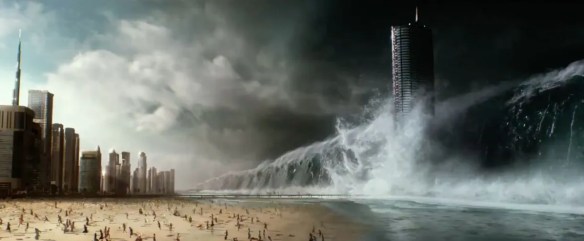Hello folks, and welcome back to Wrong Every Time. While my house is still looking for our next anime project, this week saw us burning through the first season of Andor. The show feels like a genuine miracle – not just a novel, compelling take on Star Wars, but simply the best thing the prestige TV era has produced. The script is graceful and boiling over with taut, ferocious insights, the cast is phenomenal, and the production’s fury is palpable, its drama facilitating thoughtful, anthemic commentary on our modern world. I frankly had heard indications of all this before watching, but ended up being further impressed by how well the whole thing hangs together, as well as how effectively it contorts itself into various genre molds (the heist arc, the prison break) that end up both facilitating the overall narrative and demonstrating the greatest pleasures of their own hooks in the bargain. It’s one of the best things I’ve seen in years, and I’d suggest giving it a try even if you’re understandably fatigued by Disney’s relentless exploitation of the brand. In the meantime, let’s break down some films!
First up this week was Geostorm, a film that asks the bold question “what if global warming got so bad we decided to nuke the weather?” Directed by frequent Roland Emmerich collaborator Dean Devlin, the film follows closely in the Emmerich model, offering a scattering of scientists and state department workers who must come together to save the earth from yet another would-be apocalypse. In this case, we’ve got Gerard Butler as the genius scientist who designed the weather-nuking dyson sphere surrounding the earth (don’t ask, your questions will not be answered), Jim Sturgess as his estranged brother and state department whistle-blower, and Abbie Cornish as Sturgess’ secret service agent girlfriend.
When Butler’s weather-nuking orb begins causing abnormal meteorological events (and it seemed so safe, too!), the brothers must reunite to yada yada yada. Honestly, the film’s plot is so predictable that I don’t really need to explain it: this is one of those features where you can call each beat and transition with even a moderate degree of genre familiarity. Here’s the part where they track down the washed-up scientist, who’s now living in a trailer and drinking by noon! Here’s the dramatic reveal of betrayal by the only actor who could have betrayed them! Here’s where Butler makes his speech about family and forgiveness and handing the torch!
It is true that familiarity is not necessarily a narrative crime, but Geostorm is simply so familiar that it lacks any sense of tension or surprise. And beyond that, it also lacks the Emmerich juice; the human element is weaker here than in films like Independence Day or even 2012, and there’s a frustrating lack of dramatic escalation. Aberrant weather should be one of the main characters, but here it’s just treated like an occasional home invader, with the lack of an “on the ground” character contingent robbing its ice walls and heat waves of any personal stakes. Plus, who the fuck is going to buy Gerard “my face is a meat tenderizer” Butler as a brilliant scientist? Misfires all around, I’m afraid.
Our next screening was the recent horror-comedy There’s Something in the Barn. Determined to fulfill his dream of returning to the ancestral family home, Bill Nordheim (Martin Starr) drags his wife Carol (Amrita Acharia), teenage daughter Nora (Zoe Winther-Hansen), and young son Lucas (Townes Bunner) from sunny California all the way to the hills of Norway. However, their plans to turn the attached barn into a hotel swiftly invoke the ire of the local barn elf, who despises bright lights, loud noises, and (understandably) lutefisk. When the Nordheims’ crimes outlast his patience, the battle is on between the new arrivals and all the elves of the wild.
There’s Something in the Barn is a humble feature that well understands its own scope and ambitions. The film starts off leaning on light, generally warm-hearted culture clash shenanigans, evoking such a friendly tone that it’s a little surprising when the bodies start piling up. With Martin Starr playing a broadly realized buffoon, it falls to Acharia and Winther-Hansen to provide some emotional substance, and both rise to the challenge of depicting a guarded yet loving stepmother and her understandably sullen stepdaughter. And then the second half is all “what if Gremlins but with Christmas elves,” delighting in chaos while offering some decidedly less wholesome kill scenes.
No individual aspect of the film is genuinely exceptional, but committed performances, a reasonable hit rate on jokes, and an unexpectedly squelchy last act make for a consistently entertaining holiday feature. I feel like Martin Starr’s character needed one strong connecting beat transitioning him from a divorce-worthy wet blanket to a reliable father, but aside from that, I quite enjoyed my time with this one. Don’t fuck with elves, people.
We then watched Beyond the Black Rainbow, the debut feature of director Panos Cosmatos, who’d go on to direct the rightfully beloved Mandy. Cosmatos’ first feature sees his love of surrealism and ‘70s film grime in resplendent form, alongside a fascination with and distrust of the ‘60s New Age movement that sought to reach an elevated human consciousness. At the Arboria Institute, Dr. Barry Nyle seeks to unlock the psychic abilities of his subject-prisoner Elena, allegedly in pursuit of a new way of seeing reality. But Nyle is himself already something other than human; having submerged himself in strange realities back in the ‘60s, he now merely seeks a partner with whom to share visions of the beyond.
Honestly, describing Beyond the Black Rainbow in terms of its narrative content is probably a fool’s errand. The film is entirely given over to aesthetic and texture, presenting one blown-out 35 mm vision after another, and reveling in the absolute purity of composition offered by the Arboria Institute’s harsh lights and featureless corridors. Calling to mind both Suspiria and 2001: A Space Odyssey, Cosmatos offers us a journey through a half-remembered dream, at times stretching our patience, but always eventually rewarding it with some new aesthetic wonder or nightmare fragment. Describing a film as a drug trip always feels pretty hack to me, but given this film’s overt New Age commentary, the evocation of a bad LSD trip actually feels quite intentional, and certainly true to my experiences of altered states. If that sounds like an interesting time to you, Beyond the Black Rainbow commits fully and never blinks.
Last up was The Marksman, yet another installment in our journey through Liam Neeson’s recent adventures. He stars here as Jim Hanson, a Vietnam veteran living out his days on the Arizona-Mexico border, on the verge of losing his home due to his deceased wife’s medical bills. One day he encounters a woman and son attempting to cross the border while pursued by cartel operatives, and swiftly gets caught in the crossfire. With both the law and cartels on his tail, Hanson will have to make a desperate northern journey in order to give an innocent boy a future.
The Marksman is as straightforward a moral tale and redemption story as you’ll come by, with basically every twist of the plot predictable from the preceding description. It’s the sort of film you’d expect from late-era Eastwood, more folksy and blue collar than Neeson’s usual fare, and with a simmering antipathy regarding American promises and the weight of the law. As both a Vietnam veteran and victim of American healthcare sociopathy, Neeson is an excellent avatar for the downtrodden yet fundamentally decent man, and his quiet gravitas does a reasonable job of elevating the film’s pedestrian script and workmanly cinematography. Neeson has made a great number of late-career thrillers, and this is certainly one of them.




